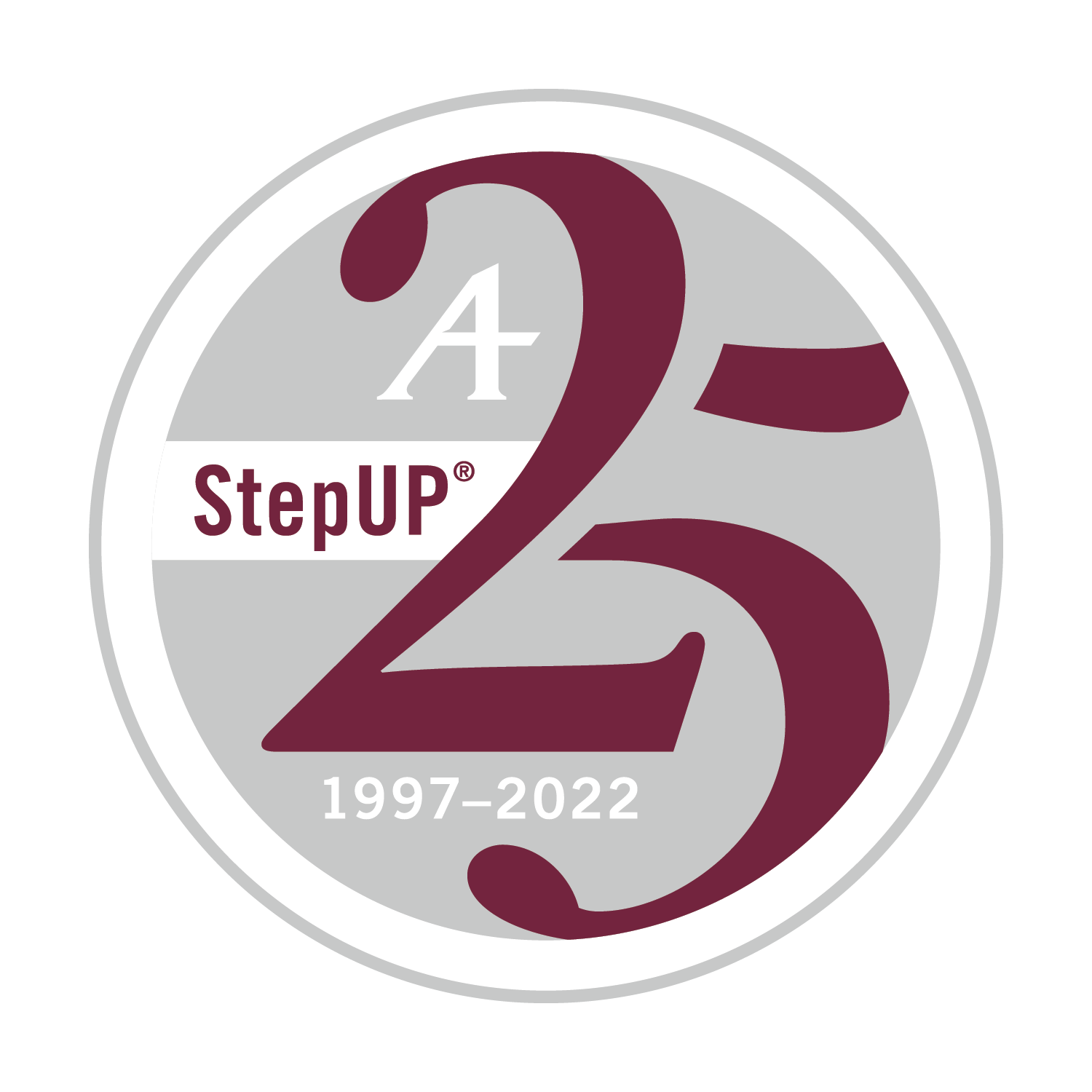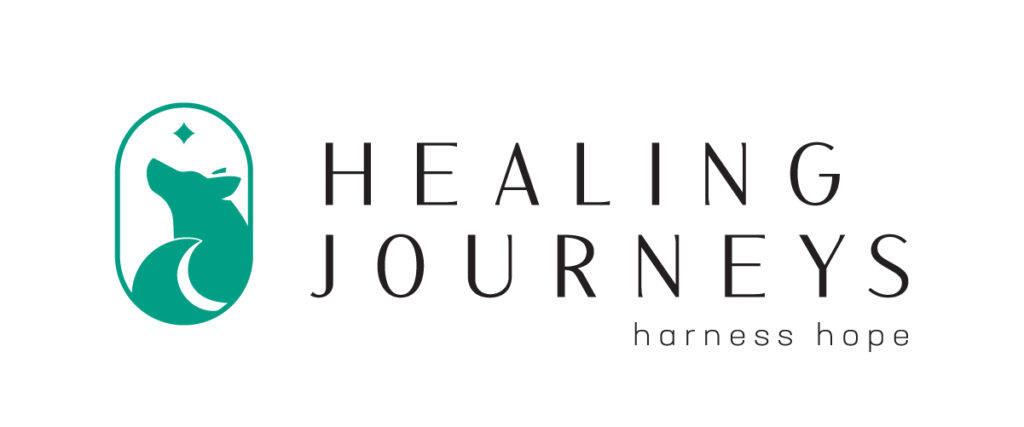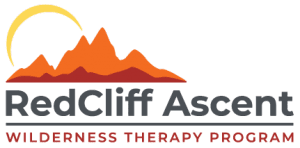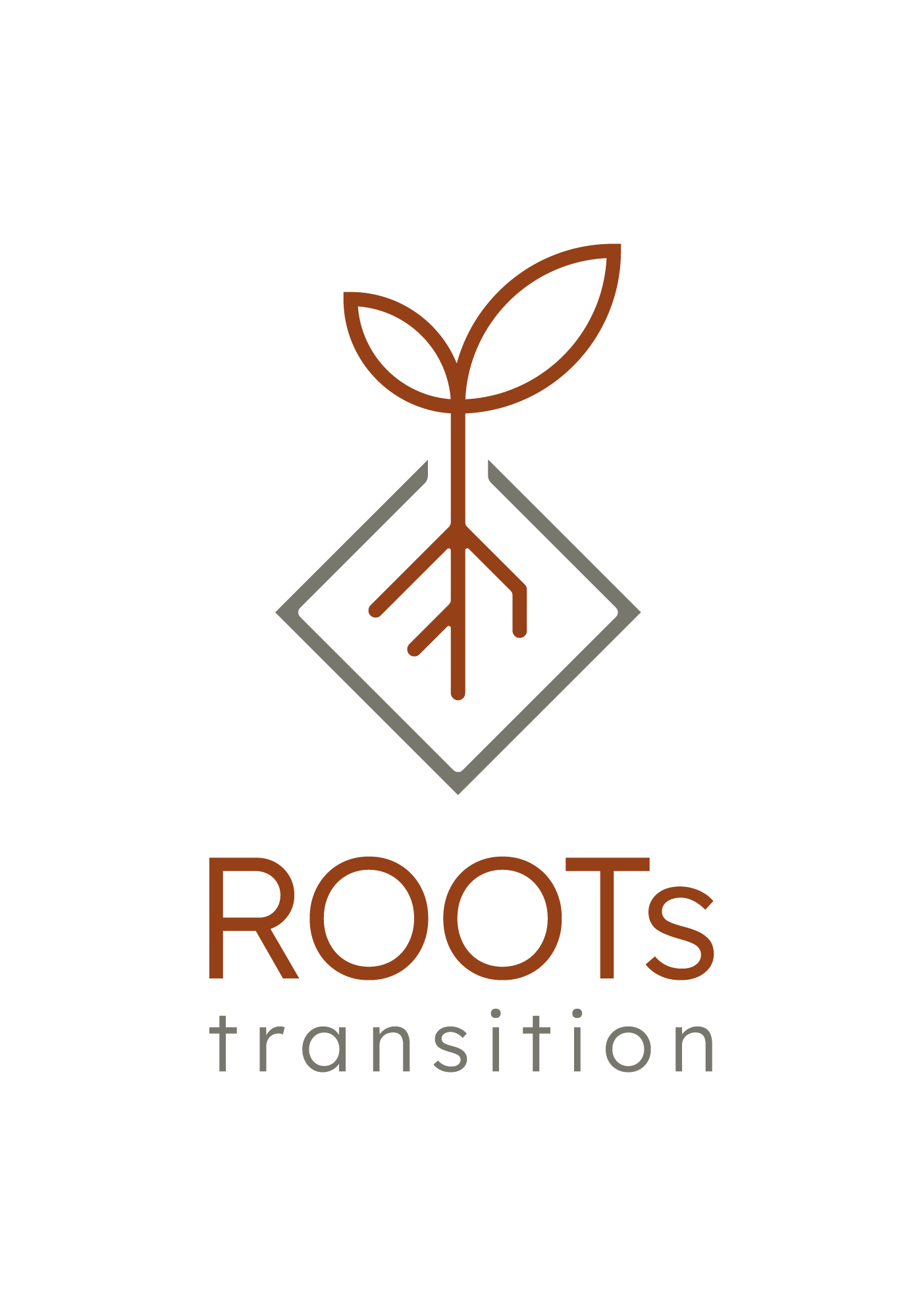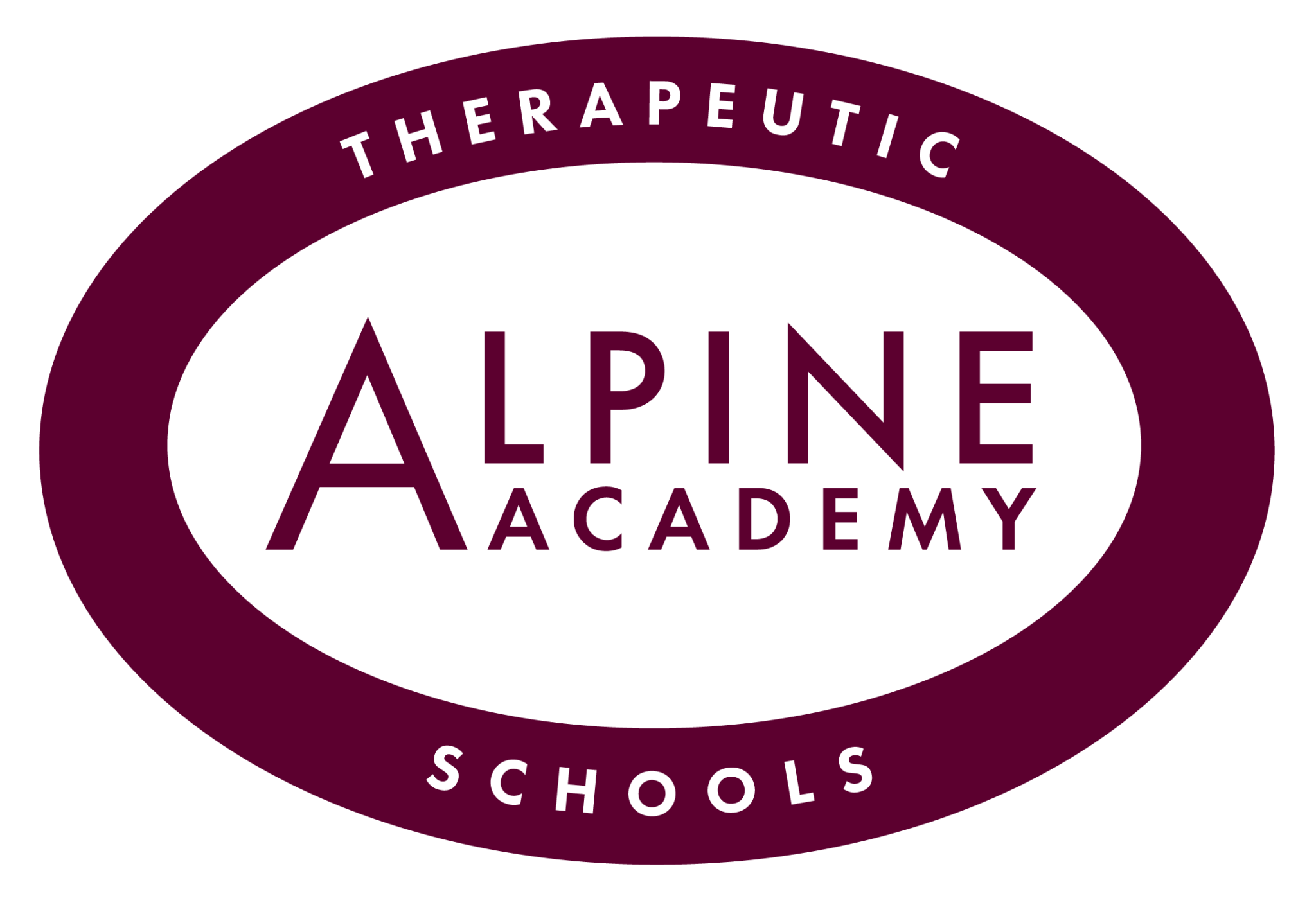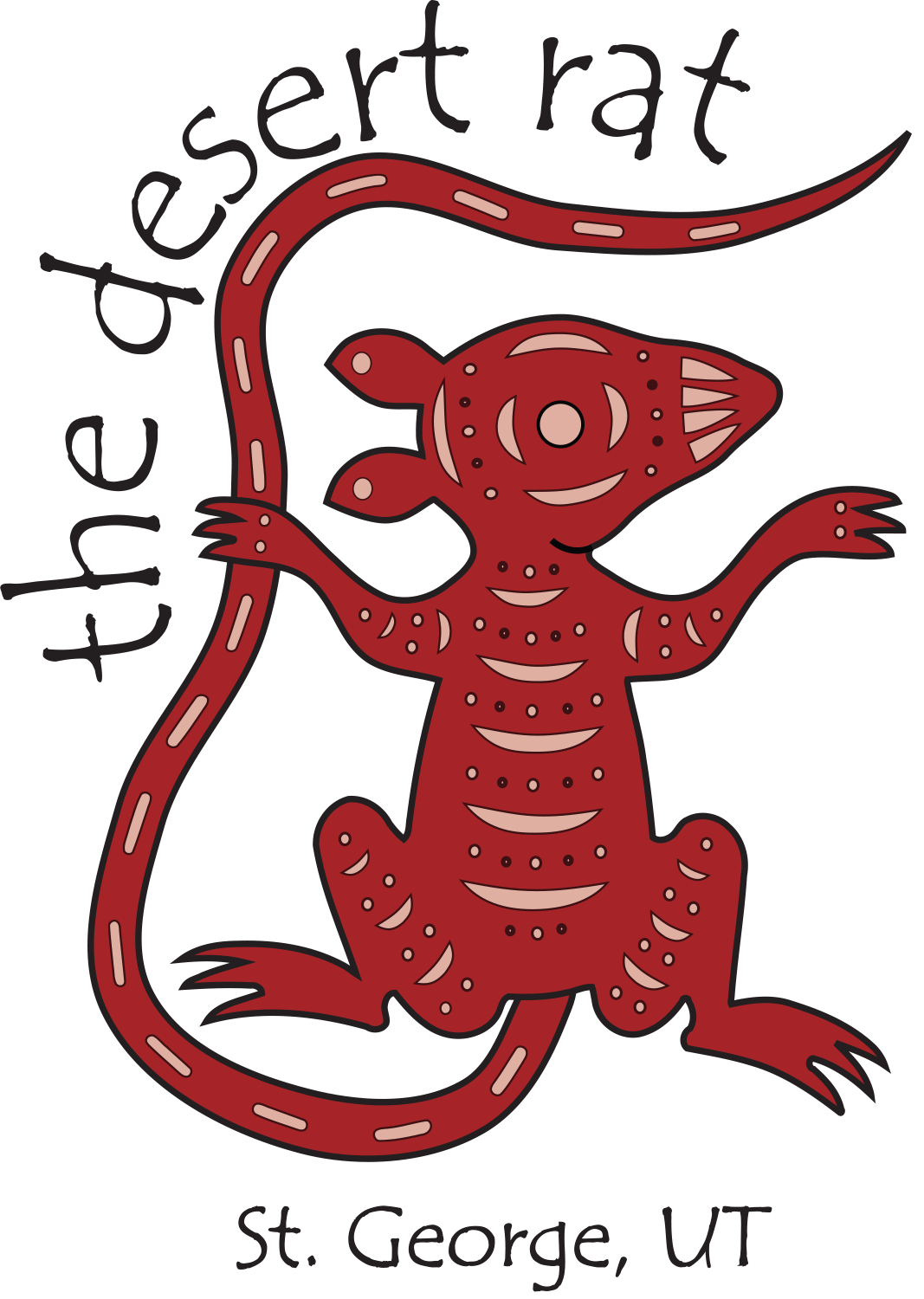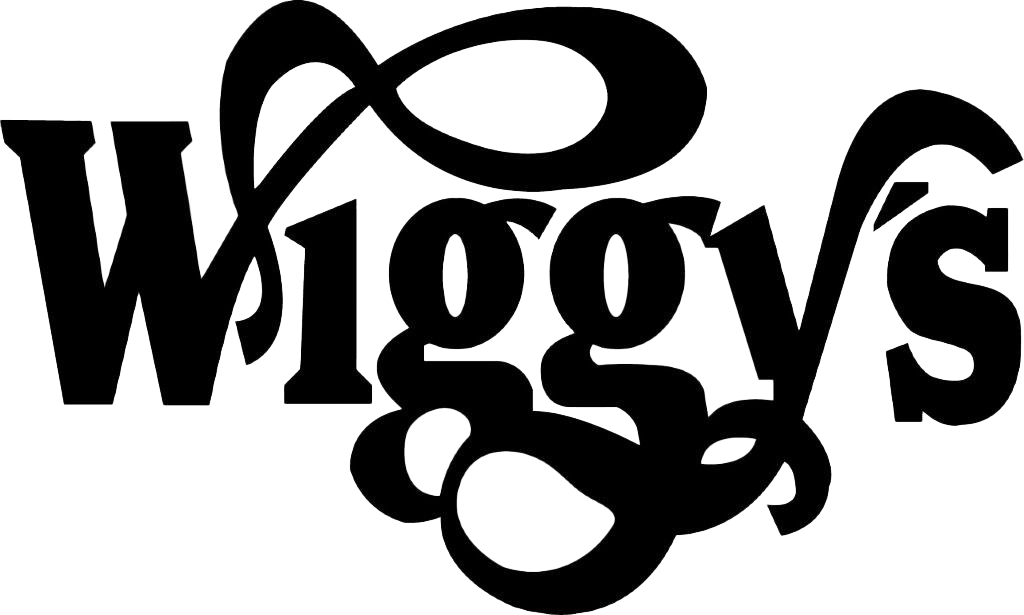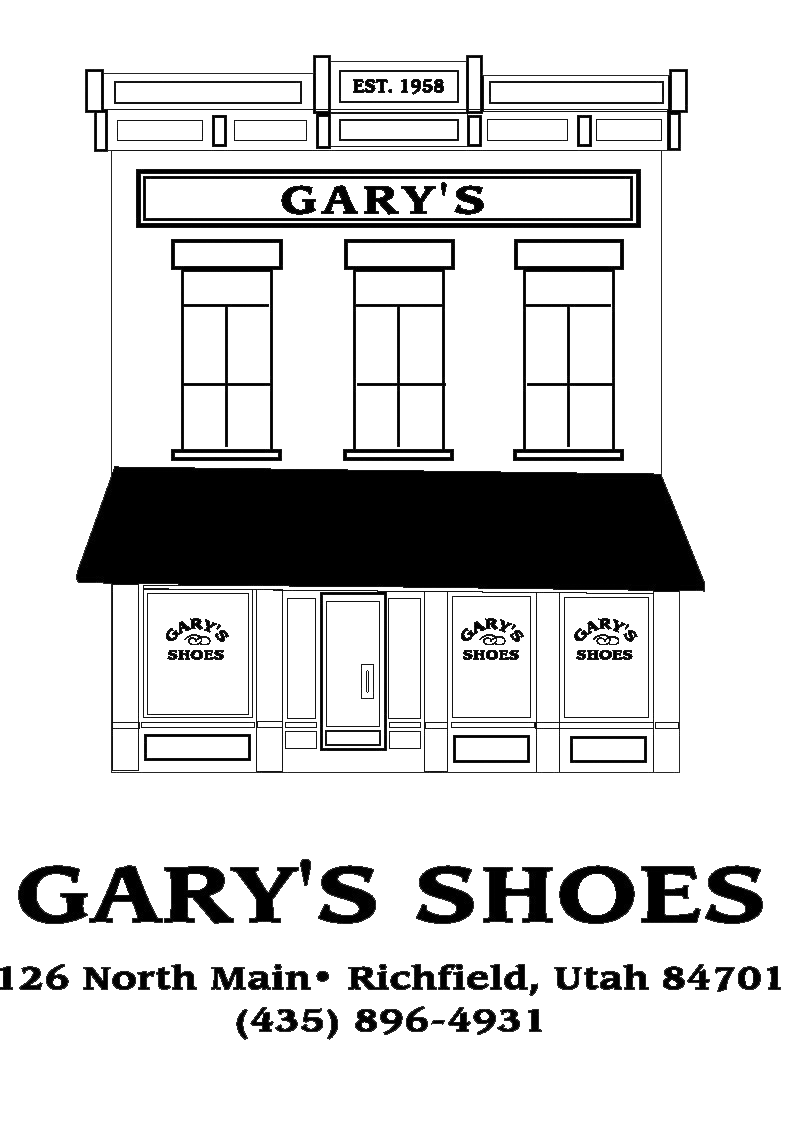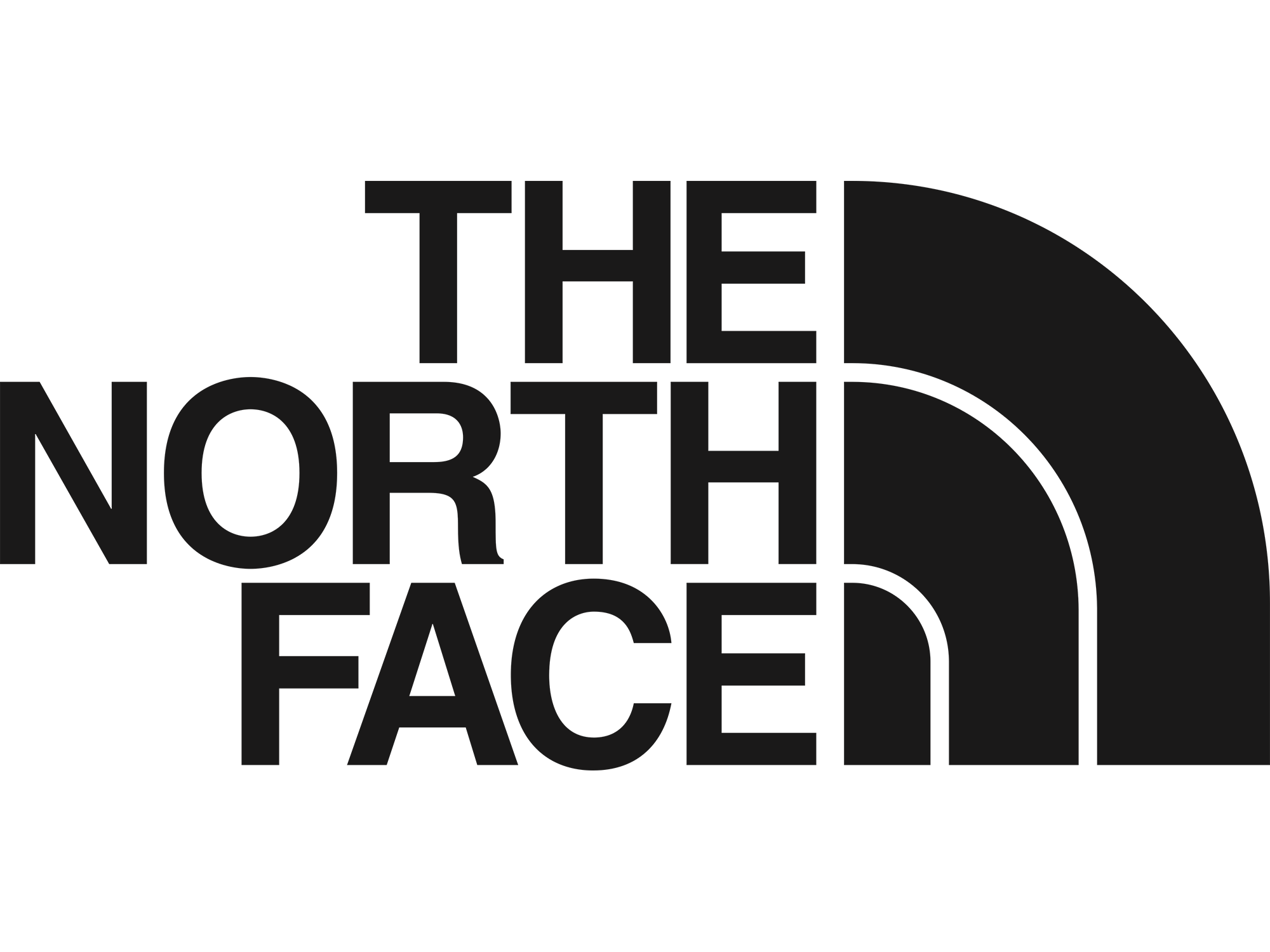Welcome!
The Outdoor Behavioral Healthcare Council is excited to return to St. George for the 2024 Outdoor Therapy Symposium.
Last year we celebrated the 20th annual Wilderness Therapy Symposium and this year, we are excited to expand the Symposium to all professionals doing therapeutic work outdoors. We get to see students, field staff, faculty members, clinicians, executive leadership, consultants - not just from the field of outdoor behavioral healthcare, but from fields and industries that are doing important work adjacent to ours.
The 2024 Outdoor Therapy Symposium has been approved by NBCC for NBCC credit. Sessions approved for NBCC credit are clearly identified. Outdoor Behavioral Healthcare Council is solely responsible for all aspects of the program. NBCC Approval No. SP-4646. You will see the number of CEs reflected next to the presentation title along with the suggested audience. We encourage all of you to look through the titles and descriptions of over 25 presentations, and attend what you believe will give you the tools and skills that help you be more confident in your work.
We want to make sure that your experience together and with us isn’t just enjoyable, but memorable.
We had so much fun in Asheville, and we can’t wait to spend time with you in St. George. Below are some changes we want to highlight that we know are going to make a difference in your experience:
- Expo Hall, Welcome Reception and Eagle Award Ceremony on Wednesday
- Lunch and Keynote presentation on-site on Thursday with Greg Jensen of Cultiva International
- Ember Award and dinner on Thursday night
- Diversity in presenters and presentation topics
You’ll notice in our schedule that we’ve included breaks between sessions. We know that some of you may still need to check email or take a call. Our hope is that you don’t feel like you need to rush between sessions, and this gives our presenters a little breathing room too.
There are coffee breaks in the morning, and coffee will be available on site for purchase during other times of the day. We know St.George is hot in August, and have made sure that there’s plenty of water - don’t forget your bottle too!
We’ve designated a room for a Friends of Bill meeting in the morning on Thursday and Friday, that will become a wellness break room during the day. Again, we know that you give a lot of energy in your jobs, put a lot of energy into your travel to St. George and are “on” during the Symposium. This space is meant to help you disconnect if you need to, but don’t want to take a break in your room.
Lastly, we’re excited that we’re able to see you all in person again and show you what we’ve been up to. On behalf of the Symposium Committee and the OBH Council we would like to welcome you to southern Utah!
Sincerely,
Gill Hallows, Symposium Planning Committee Chair and the Symposium Planning Committee
2024 OTS Conference Agenda
Alumni Open Meeting
11:00am to 12:00pm in Sunbrook A
Therapeutic Skill-Building and Trauma-Conscious Yoga Workshop
2:00 pm to 3:30pm in Sunbrook BC
Join Kay Neznik (MSW, LICSW, ACSW) and Kristen Cline (RYT-200) of Healing Journeys for a hands-on skills workshop to learn how to help clients move back into their Window of Tolerance using EMDR, trauma-conscious yoga, and animal-assisted therapy. (We invite you to wear clothing comfortable to move in!)
Expo Hall Set Up
3:00 to 5:00pm in Garden Room Lobby
The expo hall will be open for the duration of the Symposium. We invite you to stop by and meet programs and vendors. If a table is empty there will be instructions on how to get connected with their representative while at OTS.
Finding Community Event organized by Evoke Therapy Programs
Free
4:00 to 5:00pm in Entrada A
Join us and help us create meditation/mala necklaces or bracelets for Project Koru’s survivorship retreats. Project Koru is an outdoor retreat for young adult cancer survivors. We look forward to having you there! Find community, while building community.
Registration for Badge Pick up
2:00 to 5:00pm
Name badges will be available for pick up at the Registration Desk.
Welcome Reception, Expo Hall, Eagle Award Ceremony
Included in registration
Heavy Appetizers will be served, cash bar available. If you have an allergy or intolerance, please let us know.
5:30pm to 7:30pm in the Garden Room lobby and banquet hall
Join us from 5:30 to 6:30 in the Garden Room Lobby to peruse our exhibitor tables and mingle with other guests. Exhibitor tables will remain on display throughout the symposium. During this designated time, representatives will be there to answer any questions.
At 6:30 we will move to the banquet hall for the official welcome and presentation of the 2024 Eagle Award.
Eagle Award Recipient Dr. Matt Hoag
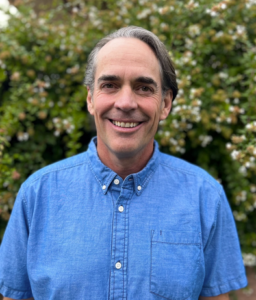
Matt is a clinical psychologist who has been working in wilderness therapy since 1997. Initially one of only a few Ph.D. 's to treat young people outdoors, he played a significant role in creating more clinical sophistication in nature-based therapy, as well as training dozens of clinicians through the years. For many years he did psychological testing with young people in wilderness therapy. When Matt was in graduate school, he was part of the team that created the Youth Outcome Questionnaire (Y-OQ). He loves a great research question, and in the last 30 years has published more than 20 articles and presented at scholarly conferences over 60 times on outcome, group therapy, and wilderness therapy. He presented the first outcome study in wilderness therapy using the Y-OQ in 1999.
His passions include his family, he has been married for almost 35 years and is the father of 4 girls and a boy. He loves being Pappi to his 3 grandchildren and taking them on fun adventures. Matt is enthusiastic about outdoor adventuring and often can be found mountain biking, hiking, kayaking, camping, and exploring the outdoors. He loves watching and cheering on his teams and attending live sporting events. He is from Minnesota and continues to believe the Vikings will make the Super Bowl each year! A more recent interest has been playing a variety of board and card games with friends and family.
Registration for Badge Pick up
8:00am to 5:00 pm
Name badges and ribbons will be available for pick up at the Registration Desk.
Morning Mingle
8:00 to 8:30 am in the North Garden Room Lobby
Coffee service will be provided from 8 to 9am.
Friends of Bill, hosted By Darcy Holt 7:45 to 8:30 am in the Snow Canyon
Breakout Sessions and Workshops
Breakout sessions and workshops will be in the following format:
Thursday Morning
8:30 to 10am: 1.5 hour sessions
Acudetox and Brainspotting, presented by Wes Fischer, CAS, NADA Certified, and Kelly Corn (1.5 CE) in Entrada A (Clinicians, Field Staff, Program Leadership, Faculty/students, Admissions and other non-clinical program staff)
The presentation starts with an explanation of both Acudetox and Brainspotting and why these practices can work well in the outdoor setting. It is followed by an opportunity for attendees to experience the integration of Acudetox and coached self-brainspotting in the group setting.
Learning Objectives
Delivery of self care and relaxation during the conference.
Share the practice of Acudetox
Share the integration of Brainspotting and Acudetox
The Darkness of Our Eyes, presented by Michael Sanders in Entrada B (Clinicians, Field Staff, Program Leadership)
Programs treating adolescent youth have been under pressure and sometimes direct attack in recent years. This is especially true of Wilderness Therapy, as highlighted by the closing of so many beautiful and well-established programs. With the release of recent documentaries in popular media an increased need to differentiate our current programming
from the past has become even more critical in changing public perception and building the future of therapeutic programs and schools with outdoor and wilderness components.
Black Elk, an Oglala Lakota holy man, famously said, “It is in the darkness of their eyes that men get lost”. As I reflected on the recent documentaries, and my own struggle with programs closing, I found myself asking, “Is there something we are not seeing that might cause us to unintentionally get in our own way as we strive to serve the students and families that come to our programs?”
I propose that the problems with the failed programs highlighted in the documentaries were not primarily a result of a single individual or team, or the lack of adequately trained field staff as has been implied. Instead, the foundational problem was one of ideology. It’s the way we think about our industry, and what we believe about the wilderness, the youth and families we serve, and our own roles in helping. What ideology seems to be behind the programs featured in the recent documentaries? Are there ideas or principles that still exist in our programs that are less effective or potentially harmful?
Let’s bring light to the future of Outdoor Therapy by taking an authentic and compassionate look at our belief systems as an Outdoor Therapy community, and challenging those belief systems. I will offer five core principles to assist in building on an alternative ideology that I believe can not only help change public perception, but create a more transparent, healthier and robust industry moving forward.
Learning Objectives
Take a hard but compassionate loot at potential problematic ideas and beliefs in outdoor therapy using Hell Camp as a template. Practice “principle mining” to get at some of the common denominators.
More of a conversation than a presentation. Let’s talk about it! How do these ideas and beliefs show up unintentionally in our current programs?
Discuss five principles that might help, and discuss others that we find and explore the potential for creating deep change in our industry and in public perception.
Never Enough? Why the ADHD brain craves stimulation and how the outdoors can support dopamine regulation, presented by Mike Hench, LMFT and Kade Matthews, LCSW (1.5 CE) in Sunbrook A (Clinicians, Field Staff, Faculty/students)
Attention Deficit Hyperactivity Disorder (ADHD) is characterized by difficulties in sustaining attention, controlling impulses, and regulating activity levels. Individuals with ADHD often experience a heightened craving for dopamine and stimulation, which can lead to impulsivity, distractibility, and difficulty focusing on tasks. Traditional treatment approaches such as medication and therapy may not fully address these underlying needs for stimulation. Outdoor adventure therapy offers a promising alternative by harnessing the natural environment to provide novel sensory experiences and physical challenges that can help regulate dopamine levels and improve attentional control. Outdoor adventure therapy that provides a safe experience for clients with ADHD, holds great potential as a holistic and experiential approach to managing ADHD symptoms and cravings for dopamine and stimulation. By providing novel sensory experiences, promoting attentional control, and fostering social connection and personal growth, this presentation aims to empower individuals with ADHD to thrive in both outdoor and indoor environments, leading to improved quality of life and well-being.
Learning Objectives
Understand the neurobiological basis of ADHD, including the role of dopamine dysregulation and the impact on attention, impulse control, and arousal levels.
Explore coping strategies and self-regulation techniques that can be applied outdoors and transferred to indoor environments to manage ADHD symptoms and cravings for stimulation.
Evaluate the effectiveness of outdoor adventure therapy as a complementary treatment approach for managing ADHD symptoms and cravings for dopamine and stimulation, considering individual strengths, preferences, and treatment goals.
8:30 to 11:30am: 3 hour sessions
Keeping the Tradition Alive: Wooden Spoon Carving, presented by Justin Swensen, AMFT (3 CE) in Sunbrook C (Clinicians, Field Staff, Program Leadership, Faculty/students, Admissions and other non-clinical program staff)
Join master spoon carver Justin C Swensen in a unique workshop that transcends the mere act of carving, guiding participants on a journey into the art of transforming a simple piece of wood into a functional and exquisite creation. This experience is more than just a skill—it is an avenue for unleashing your creative energy, fostering self-expression, and crafting something both utilitarian and aesthetically pleasing. Through the process of spoon carving, you will explore new opportunities for creative self-expression and develop a greater connection to the natural world. This workshop offers a profound way to engage with clients in your field, using the rich metaphors found in the act of carving. As we meticulously carve away the excess wood to unveil the inherent beauty of each spoon, you will discover how this practice mirrors personal and professional growth. The workshop covers essential topics, including the selection of quality wood, mastery of basic tools, and adherence to wood carving safety protocols. Additionally, we will delve into the ceremonial use of hand-carved wooden spoons, highlighting their significance and traditional value. Participants will not only gain theoretical knowledge but also practical experience, culminating in the completion of their own handcrafted wooden spoon. Elevate your craftsmanship, immerse yourself in the artistry of spoon carving, and join Justin C Swensen in keeping the tradition of handcrafted wooden spoons alive.
Learning Objectives
To gain more insight into the use of creative arts in engaging with clients in a collaborative manner while in a treatment setting: and, learn the basics of wooden spoon carving, tools needed, and wood carving safety.
To develop a personal metaphor for both the making of the spoon and the use of hand made wooden spoons in ceremony.
To learn a simple ceremony that may be used in conjunction with a hand carved wooden spoon in a therapeutic setting.
10:00 to 10:30am: mid-morning coffee break
10:30 to 12:00pm: 1.5 hour sessions
You Never Know How Strong You Are Until Being Strong is Your Only Choice (Bob Marley), presented by Derek Daley, SUDC and Laura Mills, Ph.D, QM (1.5 CE) in Entrada A (Clinicians, Program Leadership, Admissions and other non-clinical program staff)
Get Up. Stand Up. (Bob Marley) Bob said it so well, and now is the time to show the strength and value in the work we do.
It is well-known that progress and outcomes monitoring is a key to optimizing treatment experience and outcomes for clients (Stecker et al., 2017). This presentation will provide an example of how programs can use progress monitoring to ensure the best care for their clients. We will also demonstrate how programs can harness their existing data to validate their work and provide accountability to clients, families, referrers, and other stakeholders.
Legacy Treatment Center recognized that for over a decade they had been collecting client health data, but had not been using it to demonstrate the impact of their work. This changed with their commitment to develop an Evaluation Report, which highlights client demographics and treatment outcomes and explores whether clients change differently based on their gender or age.
We will dialogue about Legacy’s outcomes, with a strong focus on how engagement with attendee programs can access and harvest their own data can help get up, stand up, and show their strengths.
Learning Objectives
Understand how evaluation can strengthen the field of OBH and individual programs.
Understand program-level capacity for evaluation.
Share challenges and solutions for engagement with program-level data.
It's Knot Just Hair: Generational Trauma, the African Diasporal Hair and the Intersectionality with Mental Health, presented by Christine Carter, in Entrada B (Clinicians, Field Staff, Program Leadership, Faculty/staff, Admissions and other non-clinical program staff)
This presentation journeys through how the cultural hair experience reinforces identity in the black and brown communities, and how it can contribute to an understanding of how to support clients and staff from diverse backgrounds in a more impactful way. It touches on generational trauma, how it can be passed down culturally and cellularly, how it is reinforced consciously and subconsciously, and starts the conversation on how to better serve clients and staff from black, brown, and other communities. As we work to understand the generational importance of something that appears trivial to most people, like hair care, we move closer to bridging the gaps communally and moving the mission of inclusion further ahead.
Learning Objectives
Identify ways generational trauma is passed down in African diasporal communities and how it impacts the interactions with the world around them.
Learn what “barbershop talk” and the “beauty salon experience” in the African diaspora tell us about mental health needs in these communities.
Gain an understanding of how to start the conversation at your organization on how to create more intentional safe space for clients and staff from diverse backgrounds.
Increasing Engagement and Decreasing Trauma in Young Adult & Adolescent Treatment, presented by Heather Hayes, M.Ed, LPC, CIP (1.5 CE) in Sunbrook A (Clinicians, Field Staff, Program Leadership, Faculty/students, Admissions and other non-clinical program staff)
In the US, it is estimated that over half of teens will suffer from a mental health issue at some point during their adolescence. These figures from the National Institute of Mental Health display an alarming epidemic with grave consequences. However, it is widely evidenced that swift intervention, relevant treatment, and parental involvement in the therapeutic process significantly lessen the detrimental impact on the individuals as they journey into adulthood. Research indicates that parental involvement throughout a teenager’s treatment and recovery, by way of family engagement in the treatment plan, helps the teen achieve the best success rates. Research also shows that combined parent-adolescent and family therapy treatment plans demonstrate far better outcomes than plans in which teenagers only received individual therapy. Adolescents whose families do the work see long-term success, improved participation, higher levels of attendance, and overall family satisfaction.
This presentation continues within this realm and delves into Family Systems Theory, which seeks to explore and understand both the internal and external family models of the individual in question. By nourishing and restoring the whole self as well as the entire family, it is possible to heal exponentially. Together we will explore how increasing family engagement decreases trauma and yields healing and greater recovery success
Learning Objectives
Explain Trauma and trauma-related responses.
Identify components of the brain and understanding of neurochemistry’s role in trauma response and healing.
Define family systems and related components through knowledge of Family Systems Theory and recognize the importance of Family Systems collaboration. Identify systematic risk factors and protective factors within Family Systems, and establish protocols for balancing systems.
Lunch and Keynote 12:00 to 1:20pm in Garden Room
Included in registration
Lunch and beverages will be served. If you have an allergy or intolerance, please let us know.
Keynote speaker Greg Jensen
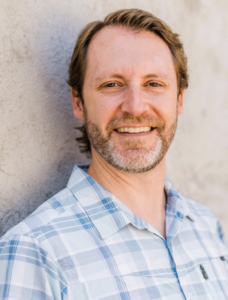
Greg Jensen is a social entrepreneur, speaker, and coach, focused on helping people lift themselves out of internal poverty. He has lived full time in Guatemala for the last thirteen years, where he started several businesses. Greg is the co-founder of Cultiva International, a nonprofit organization that mentors Guatemalan Mayan families on how to lift themselves out of poverty, by teaching them how to grow their own garden. Greg also hosts service, adventure, and leadership retreats in Guatemala with his company Cultivate Institute.
1:20 to 1:30pm: post-lunch break
1:30 to 3:00pm: 1.5 hour sessions
Back to the “Why” of Leadership, presented by Katelyn BeVard, in Entrada A (Clinicians, Field Staff, Program Leadership, Faculty/students, Admissions and other non-clinical program staff)
In this workshop we will honor and explore what it means to be a leader. Is there such a thing as a good or bad leader? If so, how do we define each? Working in outdoor therapy inherently makes you a leader and our influence on our clients is immense, but the pressures of the job can feel overwhelming. In this workshop we will dive into leadership from an internal perspective taking a look at our own values and why we do this work in order to help inform the way we lead our clients, students and employees. Understanding our why can help reduce the stresses of the job and remind us how we got here in the first place. The hope is to leave the workshop with a renewed feeling of passion towards leading clients and/or employees.
Learning Objectives
To help participants identify their core values to better understand their “why” and how to apply it to their leadership position.
To explore leadership styles and how they relate to outdoor therapy.
For people to gain a new understanding of how to think about leadership and guard against the mental weight that can come with being a leader.
Research Based Benefits of Nature Connection through Equitable Access, Culturally Responsive Pedagogy, and Equitable Evaluation Techniques, presented by Julie Byle, PhD (1.5 CE) in Entrada B (Clinicians, Field Staff, Program Leadership, Faculty/students, Admissions and other non-clinical program staff)
During this interactive session, individuals and organizations will learn the latest research on the health benefits of nature connection with applicable techniques to bridge research to practice into their programs. Topics will cover the barriers to nature and how to overcome them, designing frameworks for culturally responsive pedagogy, and instruction on how to create equitable evaluation techniques. The session will close with time for organizations to discuss their issues and ask questions about solving them.
Learning Objectives
Participants will learn the foundational historical data and the current cutting edge research data of the mental and physical health benefits of being in natural settings to implement into their program design.
Participants will learn how to create culturally responsive education practices with the communities and ecosystems they are working alongside through place based culturally conscious curricular co-design.
Participants will learn how to design a framework for creating an equitable evaluation protocol to understand the impact and value of their program.
Natural Response: Integrating Energy Work and Neurofeedback for Mental Health First Aid, presented by Angie Shockley, MA, CSP and Dianne Kosto (1.5 CE) in Entrada C (Field Staff, Program Leadership)
In the challenging and often unpredictable environment of outdoor behavioral health, planning for and providing mental wellness first aid is crucial for staff well-being. A dual-layered approach that combines on-site energy work with post-field neurofeedback sessions can provide staff with the perfect tools to not only manage but to improve their mental health.
Energy work techniques, including breath work, grounding exercises, and mindfulness, are ideal for the unpredictable outdoor setting, offering immediate relief from acute stress and trauma responses (Hover-Kramer, 2011). Once back in a structured environment, qEEG brain mapping can be used to quickly identify areas of brainwave dysregulation (Sterman, Egner, 2006). This leads to individualized neurofeedback sessions that calm the central nervous system. This holistic approach ensures staff are well-equipped to handle both immediate and ongoing emotional and psychological challenges, enhancing their capacity to provide effective care.
Learning Objectives
Understand the Integration of Energy Work and Neurofeedback for Immediate Mental Health Support: Gain insights into how combining energy healing techniques with neurofeedback provides an effective first aid response for managing acute stress and trauma in outdoor behavioral health settings.
Recognize the Importance of Post-Field qEEG Brain Mapping for Long-term Staff Support: Learn about the crucial role of qEEG brain mapping in a structured environment following fieldwork. Understand how this tool aids in identifying brainwave dysregulation and informs subsequent neurofeedback sessions for sustained mental health resilience and recovery.
Explore the Impact of Holistic Approaches on Staff Well-Being and Client Care: Examine how the integration of energy work and neurofeedback enhances staff well-being, reduces burnout, and subsequently improves the quality of care provided to clients in outdoor behavioral health therapy.
Rewriting the story: grieving what’s lost and finding what works, presented by Rob Meltzer, MA, CEP in Entrada C (Clinicians, Field Staff, Program Leadership, Faculty/students, Admissions and other non-clinical program staff)
In this workshop, I will invoke lessons from Yuval Noah Harari who teaches us that the stories that we live “inside of” define how we behave and how we function. I will share some theories about how stories get formed and perpetuated in our modern digital age. But, mostly, I will make space for us to collectively look at the narrative that is emerging about our field. What is your narrative about your work within the field of Wilderness / Outdoor Therapy? What is changing? What are you grieving? Are you writing a new chapter? What is it about? I cannot think of anything more important than to look at how we are individually and collectively sharing the stories about who we are and how we show up to do our work in the field of Wilderness / Outdoor Therapy.
Learning Objectives
Create an open dialogue that allows people to share honestly.
Allow for grieving for all that has been lost recently.
Open our hearts and minds to what needs to emerge.
It is Solved by Walking, presented by Michael Sanders in Sunbrook C (Clinicians, Field Staff)
What is solved by walking? Why do we hike? Why do we walk? These are questions often asked by students in outdoor behavioral healthcare programs, and sometimes also by staff! Baguazhang is a Taoist internal movement art that has its origins in the mountain circumnavigating practices of Tibet and Nepal. The central practice is walking a circle.
There is a reason that walking, as a practice, has been held in high esteem across the world. The Diné of the southwest say that life is a walking, the Asian Taoists wrote that walking is the mother of ten-thousand exercises, and famously, it is told that St Augustine quoted the Greek philosopher Diogenes when he said “Solvitur Ambulando”, It is solved by walking.
This workshop will explore walking and its applications for mental and physical health within a therapeutic programmatic context working with youth and young adults. We will use the circle walking practices of Baguazhang to do this.
Baguazhang, or Bagua for short, is related to Taiji (Tai Chi) and Qi Gong, and has many principles in common. It can be applied in three main areas: Promoting health and healing, exploring interaction and interpersonal relationships, and for meditation and spiritual endeavors.
In this workshop we will ::
- Explore the body mechanics of walking.
- Learn the circle walking method from Baguazhang.
- Calibrate the circle walking movements in interaction with others.
- Engage mindfulness as a tool in this movement art.
- Openly discuss applications for use in therapeutic programs.
This will be a gentle, active and interactive experience. Exercises can be adapted for participants of all levels of activity and ability.
Learning Objectives
Deepen the understanding of the body mechanics of walking; examining the complexity that underlies the simple actions. Mindfulness is key!
Learn the circle walking method from Baguazhang, and gain some practical Bagua Qigong exercises for personal solo practice.
Calibrate the circle walking movements in interaction with others, and discuss application within our individual programs and work.
3:00 to 3:30pm afternoon break
3:30 to 5:00pm 1.5 hour sessions
The Pendulum Swing: How Trauma Fragility Fuels Avoidance, Determinism, and Transference in Treatment Settings, presented by Patrick Devlin, LCSW, CADC II and Brennon Moore, LPC, CADC II (1.5 CE) in Entrada A (Clinicians, Field Staff, Program Leadership, Faculty/students, Admissions and other non-clinical program staff)
This presentation will look at how the recognition of trauma and its impact on a person has been groundbreaking to the evolution of psychology, psychotherapy, and addiction counseling. What we now understand in regards to the impact trauma has on the brain, and thus how it distorts a person’s perception and the way that they relate to the world (making them more vulnerable to self-destructive and addictive behaviors), has created a lens through which we can now conceptualize a client and better treat them. However, this presentation will also look at how an over identification with trauma, such as the idea of being a trauma survivor, without the integration of being a trauma thriver who moves beyond one’s traumatic experiences, can often lead people to be stuck in a pattern of determinism. The presentation will provide the latest research on what we are seeing with youth and families and how social media is impacting these patterns of trauma fragility, avoidance, determinism, and transference and the overall presentation of clients and families in wilderness and aftercare programs.
Learning Objectives
To educate program professionals with the latest research and patterns that are being demonstrated amongst young people and their families regarding mental health, trauma informed care, and impacts of social media.
Provide program professionals with an understanding about how language impacts behavior and self perception and the current trends with young people culturally on this topic.
Providing solutions and suggestions for implementation into treatment programs for navigating these topics.
Involuntary Treatment: Does it need defending?, discussion led by Brian Shepherd in Entrada B
Yoga in Therapeutic Settings for Adolescents Who "Hate Yoga", presented by Suhad Saadeh, MSW, LCSW, RYT (1.5 CE) in Entrada C (Clinicians, Field Staff, Program Leadership, Faculty/students, Admissions and other non-clinical staff)
The presentation will cover the importance of use of self and self disclosure responsibly, explain yoga through billable, evidence-based terminology, guide professional to deliver yoga through a trauma informed lens and facilitate the increase of client's sense of autonomy, and highlight the additional benefit of self care staff receive by facilitating yoga which aids to reduce burnout and staff turnover.
Learning Objectives
Participants will connect evidenced based language to justify billing yoga practice under insurance.
Participants will gain confidence in delivering trauma-informed yoga to enhance clients' sense of autonomy.
Participants will gain a resource of self-care to use while delivering quality care to clients in the field.
Total Eclipse of the Parts - Learning More About Youths That the Total YOQ Can Tell Us, presented by Laura Mills, PhD QM Psych and Mike Gass PhD, LMFT, CCBT, CCAT (1.5 CE) in Sunbrook A (Clinicians, Program Leadership)
Much of the wilderness literature that has used YOQ has adopted the TOTAL score as an indicator of health outcomes. The assessment, however, has important subscales that can help us understand the impact of our work and consider client characteristics that may affect their experience while in therapy.
During this presentation, we will review the findings about the nature of client health change and the client characteristics that impact change trajectories. These characteristics include gender identity, age, and family functioning. Our interactive dialogue will include audience input on their experiences and how they tailor therapy for clients across the gender and age spectrums.
Our study found that family functioning was a strong predictor of client change and outcomes. We will engage in a discussion about the importance of family functioning, and how family functioning should be considered at the time of admission, as a part of treatment planning, as a factor in therapeutic approaches, and as a factor in expected treatment outcomes. The audience will be key in this discussion, to bring broad perspectives of clinical insight to the presentation.
Learning Objectives
Using the YOQ sub-scale for treatment planning.
Broaden understanding of the impact of family functioning and learning what other programs do to work with families.
Deepen understanding of the importance of evaluation.
5:00 to 6:00 pm evening break
Dinner and Ember Award Ceremony
6:00-8:00pm Garden Room
The Ember Award Ceremony and Staff Recognition Reception is an opportunity for OBH Council member programs to recognize the work and dedication of a stand-out field guide. We invite all Symposium attendees to join us in celebrating the passion that all who work in this field exemplify.
Morning Mingle
8:00 to 8:30 am in the North Garden Room Lobby Coffee service will be provided from 8 to 9am.
Friends of Bill, hosted by Darcy Holt
7:45 to 8:30 am in the Snow Canyon room
Breakout Presentations and Workshops
Friday Morning
8:30 to 10am: 1.5 hour sessions
How does caregiver engagement predict adolescent outcomes of wilderness therapy? presented by Joanna Bettman Schaefer, Phd, LCSW; Laura Mills, PhD, QM Psych; Naomi Martinez Gutierrez, MA (1.5 CE) in Entrada A (Clinicians, Field Staff, Program Leadership, Faculty/students, Admissions and other non-clinical program staff)
Wilderness therapy outcomes are in part predicted by family functioning (Liermann & Norton, 2016; Tucker et al., 2016).Therapeutic wilderness programs can improve youth and family functioning (Liermann & Norton, 2016). There are positive relationship outcomes from wilderness therapy, one of them being improved family communication (Liermann & Norton, 2016). These improved family relationships led to increased abstinence from drugs and alcohol and improved school performance (Liermann & Norton, 2016). Some research suggests that parents’ perception of treatment gains were predictors of youth functioning post-discharge(Combs et al., 2016). In parents that had attachment disorders, those disorders predicted the parents' perception of change from the wilderness program (Combs et al., 2016). Negative family dynamics are related to the highest proportion of families who drop out of treatment (Liermann & Norton, 2016).
This session will present the results of a study examining how caregiver engagement predicted adolescent outcomes of adolescent wilderness therapy. The study aimed to answer the question: What program activities and treatment components involving caregivers predicted optimal adolescent wilderness treatment outcomes? Using the NATSAP database, the study used statistical analyses to answer the research question. Implications for programs and treatment interventions will be presented and explored.
Learning Objectives
Participants in the session will leave with a strong understanding of how caregiver engagement relates to adolescent outcomes of wilderness therapy.
Session participants will better understand the theory and concepts which help explain the relationships between caregiver engagement, family therapy interventions, and adolescent outcomes of wilderness therapy programs.
Participants will learn how specific family therapy interventions within program related to adolescent wilderness therapy outcomes, leaving with an understanding of how to optimize family therapy programming to improve adolescent treatment outcomes.
“Delivering Effective Adventure Therapy: A Therapist's Guide to Producing Transformative Change for Clients” book presentation by Mike Gass, Ph.D in Entrada C (Clinicians, Program Leadership, Field staff)
Competent therapists continuously search for effective therapeutic interventions to engage clients in treatment and promote positive change. In this process, therapists are not looking just for additional information, but efficacious methods for the delivery of therapeutic treatment. Traditional therapeutic interventions don't always work well with some client groups due perhaps to the passivity of traditional talk therapy, increased levels of resistance on the part of the clients, lack of input from clients on what is working for them, and the ability to reach levels of psychological depth that promote change.
The purpose of this book is to provide effective interventions of enriching therapeutic techniques using experiential methodology infused with metaphor. Rather than just “talking the talk” of therapy, this book will provide interventions and case studies that utilize actual experiences and metaphors. These experiences enrich the therapeutic process and assist clients in reaching their therapeutic objectives faster with longer-lasting results.
Help Us ⇆ Help You: A mastermind meeting to solidify transformative experiences, presented by Hillary Moses, LCSW; Casie Fariello and Jared Alston, LCMHC, CPC (1.5 CE) in Sunbrook A (Clinicians, Field Staff, Program Leadership, Faculty/students)
Through the framework of parent peer support, parent coaching and family therapy, we address different ways that IECs, schools, and programs can support their students by nurturing stronger, more adept, and more resilient family systems. We will share themes we see prior to, during and after a residential or wilderness experience, we will suggest some dos and don’ts based in our own successes, failures and realizations after 20+ years of advice giving to this population, we will share with you what you teach that seems to have staying power and what does not and we will invite a brainstorm from participants to better ensure a transformative experience for the families we serve.
Learning Objectives
Through the framework of parent peer support, parent coaching and family therapy, participants will understand the top 5 common themes expressed or witnessed as needs by families we support.
Participants will understand unique ways to support their child and adolescent clients by bolstering the family system around them.
Participants will learn 3-5 strategies to evolve their curriculum to increase the chance that treatment can be a catalyst for a new life for students and their families.
8:30 to 11:30am: 3 hour sessions
Sharing from the Heart: Create your own heart stick to use it in ceremony, presented by Justin Swensen, AMFT (3 CE) in Sunbrook C (Clinicians, Field Staff, Program Leadership, Faculty/students, Admissions and other non-clinical program staff)
In this workshop, we are going to explore the use of the heart stick, also known as a talking stick, in wilderness therapy. In one form or another, the heart stick has been used in different cultures around the world for thousands of years (Browning, 2016). It is used in ceremony, healing, and conflict resolution discussions just to name a few. Quite often a heart stick is sought out in nature by a medicine man, healer, elder, or member of a tribe or community. It is ceremoniously decorated with significance to the community and blessed for use in a larger ceremony or talking circle. Other times, the heart stick finds the person who needs a way to express what is weighing heavy on their heart (Browning, 2016). In wilderness therapy, we often use the heart stick in ceremonies with our clients during times of transition. We invite them into a sacred space and pass the heart stick around allowing them to speak from the heart. I would like to invite you to come and create your own heart stick. Starting with local responsibly sourced stick of wood, we will be using paint, feathers, beads, and wood carving tools to create a heart stick that will be worthy of ceremony in your own community. All participants will have an opportunity to be a part of a ceremony where a heart stick is used as well as complete their own heart stick by the end of the workshop.
Learning Objectives
Participants will learn 3-5 strategies to evolve their curriculum to increase the chance that treatment can be a catalyst for a new life for students and their families.
Participants will learn how to obtain the materials necessary to make their own heart stick and some of the traditions behind different woods and materials used to decorate them.
Participants will complete their own heart stick for use in their program or community
10 to 10:30am: mid-morning coffee break
10:30 to 12:00pm: 1.5 hour sessions
How to get the most out of psychological testing - going beyond diagnosis, presented by Jennifer Brown, PsyD (1.5 CE) in Entrada A (Clinicians, Field Staff, Admissions and other non-clinical program staff)
Accurate diagnosis is essential, and so is understanding the finer details of that diagnosis; how various diagnoses impact each other, as well as your clients’ strengths and weaknesses. Autism is not the only diagnosis that comes in a spectrum, another example is ADHD, a disorder of the executive functioning skills, but what are executive functioning skills and which ones are impacted in your client and how badly? Are there other factors also playing a role? Is depression manifesting more psychically or cognitively? Is the anxiety situational or a more imbedded set of traits? This workshop will define psychological testing in simple terms, will help explain what all the numbers mean, define the common jargon, explain the depth and breadth that is possible, as well as give multiple tips as to how to set up a testing culture within your setting aimed at maximizing results.
Learning Objectives
Demystify common jargon frequently used in psychological testing, i.e. executive functioning, norms, visual spatial processing, etc.
Give a plain English understanding of what exactly cognitive and achievement testing result numbers all mean in functional terms to better understand clients.
Help give treatment teams a solid understanding of how to help clients get ready for and get the most out of testing.
Exposures in the Woods, Discussing the Intersection of ERP and Adventure Therapy, presented by Mark Rainsdon, LCSW and James Mason, CMHC, CCAT (1.5 CE) in Entrada B (Clinicians, Field Staff, Faculty/students)
Exposure Response Prevention (ERP) is indeed considered the gold standard for treating anxiety disorders, including OCD. It involves gradually exposing oneself to feared objects or situations (exposure) while refraining from performing compulsive rituals or avoidance behaviors (response prevention). This process helps individuals learn that their feared outcomes are unlikely and that their anxiety will reduce over time.
Adventure therapy, on the other hand, utilizes outdoor activities and experiences to facilitate personal growth and enhance mental health. Combining ERP with adventure therapy can be powerful, as it allows individuals to confront their fears in a novel and engaging environment. In addition, both models of therapy are experiential models, and numerous facets of each model intersect. For instance, the Facilitated Wave Model used by AT therapists is similar to the exposure hierarchy process utilized by ERP therapists.
However, there are ethical and clinical considerations to be mindful of. It's crucial to ensure that the level of challenge in adventure therapy is appropriate for each individual, considering their specific fears and comfort levels. Therapists must maintain a safe and supportive environment, providing adequate debriefing and processing as balancing the excitement of adventure with the therapeutic goals of ERP requires careful planning and expertise.
Learning Objectives
Understand what ERP is and what diagnoses it best treats.
Have a basic knowledge of how to create, implement and follow through with a fear hierarchy.
Understand the close connection between ERP and adventure therapy, as well where it can be used in wilderness and adventure situations.
Agency, Challenge, Choice and Control, presented by Thomas Leahy, MS (1.5 CE) in Entrada C (Clinicians, Field Staff, Program Leadership, Faculty/students)
Our personal adventures begin in a place of comfort and control. For most of us in the experiential field, adventure is a choice. For our participants adventure is something imposed by well-intentioned others. Our programs create a risk-based social learning situation and most participants arrive out of their comfort zones and in a state of high stress. Our programs impel participants so far into the novel that establishing and maintaining control is a very difficult task.
Why do we lead people into risk-based social learning situations? This workshop tells a story of risk-based adventures in the social settings of education, therapy and personal growth. This workshop explores essential questions around the modality of facilitated challenge. Such as: What are we hoping our participants gain when out of their familiar and thrust into experiences of risk? How do participant self-perceptions influence their choices, behaviors and outcomes? What psychological and physiological responses can we expect to see? Should participants be impelled out of their comfort zones? And if so, by whom? What role do the perceptions, beliefs and behavior of the facilitator have for the participant experience? While guided by passionate facilitators with positive intentions, why do some participants thrive while others
struggle, freeze and reflect that they have failed? Finally, how do we help people who end up highly emotional while facilitators and participants on the ground cheer them on to perceived shared goals? This is the workshop that provides a prescription of how to make adventure resonate for everyone.
Learning Objectives
AFFECTIVE/WHY: Participants will learn briefly of the history of risk based experiences and why our shared mental models of experience, risk and learning can create cognitive dissonance as we engage with our clients. If we consider our common goals of Learning, growth and healing, we might consider opportunities in using risk that actually provide participants with "Choice and Control" (Dewey) and empower life skills that all people need for success in life.
REPRESENTATION/WHAT: Participants will experience a simple process with four questions and a sequenced process to follow that develops High Personal Agency and Self Efficacy for making "Responsible Choices" (Glasser).
ACTION/EXPRESSION/HOW: Participants can explore and practice the model in real time and understand the simple basics of how specific and realistic goal setting in simple tasks can experientially deliver a process that will work in their personal lives as well as in their moment to moment interactions with their clients.
Healing Journeys: Supporting Mental Health Through Dog Sledding, presented by Kristen Cline, J.D., M.R.C.P, RYT-200, Trauma-Conscious Yoga Training and Kay Neznik, LICSW, ACSW, EMDR Clinician (1.5 CE) in Sunbrook A (Clinicians, Field Staff, Program Leadership, Faculty/students)
The purpose of this proposed workshop is to introduce participants to our innovative approach to outdoor therapy, which combines animal-assisted therapy, EMDR therapy, and trauma-conscious yoga to create one-of-a-kind therapeutic dog sledding adventures.
While you might not have heard of dog sledding as a form of animal-assisted therapy before, any one who has ever stood on the runners of a sled behind a team of dogs understands how empowering and special it is. Learning to run sled dogs is a powerful invitation to: learn leadership and teamwork skills; develop an internal sense of confidence; and to experience unconditional love for self and one’s four-legged partners. Dog sledding requires coordination of the body and mind, and watching the dogs run produces bilateral stimulation – just as in EMDR. When paired with therapeutic support and trauma-conscious yoga instruction, learning to dog sled is a healing journey unlike any other.
Learning Objectives
Participants will learn how animal-assisted therapy, EMDR, and trauma-conscious yoga support holistic healing.
Participants will view, and participate in, EMDR, animal-assisted therapy, and trauma-conscious yoga techniques.
Participants will learn about the foundations of trauma-conscious yoga and how it differs from other styles of yoga instruction
Closing Ceremony and Wrap Up
12:00 to 12:30pm in the Garden Room
Wellbeing while at the Outdoor Therapy Symposium: The OBH Council recognizes that Symposium days are long, engaging and can sometimes lead to overstimulation and exhaustion. In the spirit of our work and encouraging you to take care of you, we’ve designated the Snow Canyon for those who need some time to disconnect during the day. After the Friends of Bill meeting on Thursday and Friday mornings, the Snow Canyon will transform into a break area. We have also built 30-minute breaks into the schedule between morning and afternoon sessions. Our hope is that you will be able to learn and digest the information before diving into your next session.
We also recognize many of you are leaders with your programs, companies and organizations and may need to squeeze in some work time.
Meals: We’ve included the Welcome Reception and Expo Hall with the presentation of the Eagle Award on Wednesday evening where heavy appetizers will be served. Thursday lunch with our Keynote presentation and dinner buffet on Thursday evening where we will present our Ember Awards. These meals are all included in your registration. The Dixie Center doesn’t have coffee or a restaurant on site, but we have two coffee breaks on Thursday and Friday. For those staying until Saturday, we encourage you to explore St. George. The Dixie Center is located less than 10 minutes (by car) from downtown St. George.
Pre-Conference Sponsors
Basecamp Sponsors
Coffee Break Sponsors
Registration Sponsor
Ember Award Sponsors
Gary’s Shoes
Expo Hall Exhibitors
Jared Alston, LCMHC, CPC, has worked with families in the outdoor behavioral health field for nearly 2 decades. Ranging from field instructor to clinical therapist, he spent the majority of his time working with a wilderness program. In 2022 he started Westward Family Services, dedicated to providing family therapy and mentorship to families either trying to stave off treatment or transitioning their child home after therapeutic intervention. Jared believes that each family member has their own area of responsibility to identify and work towards accepting. Through this work, empathy and hopefully flexibility and grace can be exhibited from other family members and healthy conflict resolution can be normalized.
Katelyn BeVard is the Program Director of Evoke at Entrada and has been with the company since 2009. Through her many roles with Evoke, she has gained a versatile understanding of and fascination with leadership. Katelyn’s attraction towards leadership began at a young age through sports and grew even more as a college athlete. In her professional career she has held several leadership roles outside of Evoke including; Current OBH Council Chair, former OBHC Best Practices Committee Chair, Former Secretary of the OBH Council, Former Chair of the Southern Utah Program Alliance, and current AEE Accreditation Council Member.
Jennifer Brown, PsyD, has been completing psychological assessments for 15 years, first in a university setting and for the past 13 years with Psychological Solutions in wilderness and residential treatment programs. She has completed nearly 1500 assessments diagnosing learning disabilities, autism, ADHD, personality disorders and a very broad range of other mental health disorders. When not testing she loves to travel, and is an avid birder and reader of fiction.
Julie Byle, PhD is the Founder at Natures Navigation, LLC, a National Science Foundation Research Fellow, and educator at the University of Colorado. Her research meets at the intersection of systems ecology, the learning sciences, and cultural ethnography. Through place-based service-learning programs she studies the benefits of nature connection through ecological literacy, honoring cultural funds of knowledge, and challenging deficit views of marginalized communities. She creates culturally relevant education programs, curriculum, and evaluation tools. She has experience designing, managing, and evaluating formal and informal outdoor education programs, as well as conducting community ethnographic research through oral histories and leading community action projects with novel observational protocols. She is passionate about the power of place and how historical ecology and intergenerational learning leads to reciprocity and belonging through environmental stewardship. Julie holds a Bachelors in Evolutionary Biology, a Masters in the Nature Based Learning Psychology, and a PhD in Cultural Ecology and Ethnography.
Christine Carter was born and raised on the Southside of Chicago, IL. While attending Bradley University, where she majored in Biology and minored in Psychology, she reunited with her love for the outdoors during study abroad in Costa Rica. After graduating in 2010, she worked in various industries, including finance, youth development, dance, and healthcare. Adventure led her to New England, in May 2022, to work at Summit Achievement in Stow, ME as a guide. She has been helping to drive culture forward at Summit Achievement, where she is now the Field Director, and has been for the last year and a half.
Kristen Cline, J.D., M.R.C.P, RYT-200, Trauma-Conscious Yoga Training, is the Operations Director of Healing Journeys. She knows firsthand the power that time spent in nature, Eye Movement Desensitization and Reprocessing (EMDR) therapy, and yoga can have in addressing adverse life experiences. Kristen is a yoga guide (RYT-200) and has completed additional training in trauma-conscious yoga instruction. She is also a licensed attorney in Alaska. Working with, and learning from, sled dogs is the greatest joy Kristen knows. Kristen is also the owner of Magpie Mushing.
Jesy Cordle PhD(c), LRT, CTRS, CCAT has worked extensively in the fields of adventure therapy and recreational therapy. She has presented at local, regional, national, and international conferences on a myriad of topics relating to her work and research in these fields. She is a doctoral candidate at Clemson University focusing on the use of adventure-based programming and adventure therapy while retaining practical experience in the field as the Director of Programs for Chicago Voyagers. Jesy is on the TAPG Leadership Council as Professional Development Coordinator, focusing on increasing access to training in the field, as well as sitting on the AEE Certification Council.
Kelly Corn has been with AIM House for over twenty years and is a wealth of knowledge and an asset to the young adult treatment world.
Derek Daley, SUDC, is the co-founder of Legacy Treatment Center and works to expand quality and compassion in mental health and addiction treatment. He promotes the integration of therapy with nature (#RXoffthecouch), elevates industry standards through involvement with NATSAP and OBH, and increases treatment accessibility via the LOA fund. Derek leading policy reform efforts, collaborating with various stakeholders to eradicate harmful treatment, and working to enable families to distinguish quality programming.
Patrick Devlin, LCSW, CADC II is a Licensed Clinical Social Worker (LCSW), a Certified Alcohol and Drug Counselor, and is a board approved supervisor in both areas. He began his career in the therapeutic field in 2008 and has worked in a number of treatment settings. He has extensive training and specialty in the areas of addiction, trauma, family dysfunction, mental illness, and body-based therapies. He is trained in advanced Somatic Experiencing, EMDR, Brainspotting, and mindfulness approaches. Above all he believes in the Carl Jung assertion, "The good therapist must create a new therapy for each patient". In addition to his therapeutic training and graduate education, he practices and has been trained in nature based rites of passage ceremonies through the School of Lost Borders. He is a speaker and trainer and is a Co-Founder of Skyline Recovery and Broken Top Counseling in Bend, Oregon.
Casie Fariello, CEO and co-founder of Other Parents Like Me, Inc., is dedicated to supporting parents and caregivers grappling with teen and young adult mental health issues. With a 26-year career at United Airlines, Casie retired in 2021 to build a nurturing community for parents. Leveraging her experience in establishing peer support groups, she seamlessly integrated these into Other Parents Like Me, offering daily support sessions, weekly speaker talks, and monthly expert panels. As a volunteer for The Partnership to End Addiction, Casie advocates for improved mental healthcare access. Her vision is to provide a safe space for parents and caregivers to find solace and community.
Wes Fischer, CAS, NADA, has been with AIM for nearly ten years, working with young adults. Finding this field on the path of his recovery, he is passionate about the treatment process. While working mainly in Operations and Management, Wes enjoys client contact by offering this presentation in the group setting weekly.
Mike Gass, Ph.D (he, him, his) the Director of Research and Fundraising for Play for Peace, an international organization focused on using compassionate play to bring together people from different nationalities, religions, and backgrounds who find themselves in conflict with one another. He is a licensed marriage and family therapist by the State of New Hampshire, recognized as a clinical fellow by the American Association of Marriage and Family Therapists (AAMFT), certified as a cognitive behavioral therapist (CCBT), and has achieved certified clinical adventure therapist status (CCAT) from the Association for Experiential Education (AEE). His latest book, Delivering Effective Adventure Therapy: A Therapist's Guide to Producing Transformative Change for Clients, will be released on September 1, 2024 by Routledge Press.
Heather Hayes, M.Ed, LPC, CIP, is the founder and CEO of Heather R. Hayes & Associates, Inc. She is a Master’s level Licensed Counselor in the State of Georgia, Board Registered Interventionist (CIP) and Certified ARISE Interventionist. Ms. Hayes earned her B.A. from Emory University and her M.Ed. from Antioch University in Counseling Psychology. A veteran of the behavioral health field, Heather has over 35 years of experience treating clients with complex mental health issues and the full spectrum of addictive disorders. She has also worked with clients of all ages and specializes in the treatment of adolescents/young adults, trauma, behavioral issues and eating disorders.
Known as one of the country’s most prominent authorities on these topics, Ms. Hayes is a coveted speaker on the national and international stage, is widely-recognized for her comprehensive and trauma-informed approach to intervention, and has been published in numerous journals, books, and other industry publications. Ms. Hayes also serves as an on-air expert and consultant for CNN and Dr. Oz and has been featured on A&E, ABC, CBS, BBC, FOX, MTV and NBC. In addition, Ms. Hayes is a featured interventionist on the 2018 & 2019 seasons of A&E’s high-profile show Intervention.
Throughout her career, Ms. Hayes has been a lifeline for clients at their most profound points of suffering. She offers clients and their families a safe haven as they navigate the recovery journey and works with the entire family system to support long-term, sustainable healing.
As an independent interventionist and a staunch proponent of professional ethics, Ms. Hayes does not have financial relationships with any treatment centers or clinicians. Over 95% of her interventions have successfully ended with the subject agreeing to treatment.
Outside of work, Heather uses her expertise to give back to her community by volunteering as the psychological profiler with the Forsyth County Sheriff’s Department Hostage Negotiation and SWAT Team.
Mike Hench, LMFT, received a BS degree in Family and Human Development from Brigham Young University in 1998, an MS degree in Marriage and Family Therapy from the University of Kentucky in 2001 and an MBA degree from Arizona State University in 2006. Mike has been a licensed marriage and family therapist in the state of Utah since 2004. Since 2002 Mike has worked as a therapist and clinical director in residential treatment, wilderness therapy, extended care sober living, and young adult transitional living for a number of NATSAP and OBH affiliated programs.
Dianne Kosto is a leading advocate, author, and founder of SYMMETRY Neuro-Pathway Training, driven by a mission to make Neurofeedback universally accessible. Her journey, documented in "From Trauma to Triumph: A Mom's Journey with Neurofeedback," highlights her personal and professional quest to offer hope to families navigating mental health challenges. With over 14 years in the field, Dianne has become a pivotal figure in Neurofeedback, sharing her expertise with professionals and families alike. Her passion stems from her own experience, witnessing her son's transformation through Neurofeedback, which inspired her to ensure this technology benefits all. Distinguished by her compassion and dedication, Dianne is a Mom on a Mission to broaden the reach of Neurofeedback, transforming lives without boundaries.
Thomas Leahy, MS, has worked in education, therapy, and experiential adventure since 1977. He holds a Bachelor’s Degree in Anthropology from Bloomsburg University and a Master's degree in Experiential Education from MSU-Mankato. He is the author of “Agency, Challenge, Choice, and Control,” a deep exploration of risk-based social learning situations. He is the recipient of the 2002 AEE Michael J. Stratton, "Practitioner of the Year" and the 2011 Critical Link Award from The Association for Challenge Course Technology. Tom continues his work in direct service and is starting his next book, "The Innovative Team."
Naomi Martinez Gutierrez, MA, is a doctoral student at York University, pursuing a Ph.D in quantitative methods. She has served as a statistical consultant and research assistant for a number of years. Her research has been published in numerous peer-reviewed journals.
James Mason, CMHC, CCAT, has known since undergrad that working and supporting those in the adolescent and young adult population is the dream! Someone once told him that the most effective way to change the world is to work with teenagers, and he couldn’t agree more. Adolescence can be a paradox: it is a beautiful period of discovery, examination, curiosity, and learning. On the other hand, adolescence is also challenging, frightening, exhausting, and overwhelming. This paradox applies not only to the adolescent, but to everyone in their immediate circle. Many teens carry a large number of demands, expectations, and pressures in conjunction with a lack of tools or skill sets at their disposal to tackle said demands. When we consider the various factors and nuances the average teen must accommodate for prior to having a fully developed prefrontal cortex, we can understand why many adolescents experience mental health issues. Having a foundational belief in the resilience and capabilities of adolescents is core to how James approaches therapy.
He utilizes an energetic and relationship-focused approach to therapy. James believes there is power and tremendous value in the ability to have fun, and so he strives to incorporate activities and experiential therapeutic interventions whenever possible. His therapeutic process with students is to combine the systematic approach of cognitive behavioral therapy with the relational approach of person-centered therapy. James believes that combining CBT’s emphasis on examining the connection between thoughts, feelings, and behaviors with the more personal component of the person-centered approach is a powerful combination that invites students towards making purposeful changes.
Kade Matthews, LCSW, received a BS in Behavioral Science, social work emphasis from Utah Valley University and a Master of Social Work from the University of Utah. Kade is a Licensed Clinical Social Worker in the state of Utah. Since 2006, Kade has dedicated his career to working with adolescents, adults, couples, and children with a variety of mental health, substance abuse, social, and relationship difficulties. Kade has focused his therapeutic work with adolescents and families in the residential and therapeutic boarding setting before taking on an executive director role at ATC in 2023.
Kathleen McIntyre, MS, forest ecologist turned nature therapist, has led therapeutic and life-enriching experiences in Nature for 25 years. As a lifelong educator, she co-founded and is the Director of Mindfulness and Outdoor Leadership at the Davidson Green School. Kathleen leads retreats internationally, facilitates workshops, is a speaker, and supports individuals to reclaim their body, mind, and spirit through embodied connection with Nature. She is the author of The Nature Reset.
Rob Meltzer, MA, CEP, is an Educational Consultant, Wilderness Guide, Therapist, and Teacher. He is the Founder of the Outdoor Therapy Symposium and a co-founder of Naropa University's Master's in Nature-Based Therapy.
Laura Mills, Ph.D, QM, Psych is the Director of Evaluation Services at OutcomeTools. She is dedicated to fostering the capacity for evaluation among mental health and addiction programs. For over 15 years, her work has focused on the use of data to optimize treatment outcomes, validate the work of service providers, and advance knowledge in the mental health and addiction field.
Brennon Moore, LPC, CADC II, is a Licensed Professional Counselor (LPC), Certified Alcohol and Drug Counselor (CADC-II), and a Nationally Certified Trauma Therapist (CTT). Brennon has been specializing in young men's trauma for nearly a decade in both a residential and outpatient setting. His interest in trauma healing began in academia while studying experiential and gestalt approaches to treating trauma at The University of Cork in Ireland, and several months working as a counselor with traumatized children in the Middle East during his graduate studies. Brennon is a trained EMDR practitioner, a trained brain spotting and hypnosis practitioner, a trained DBT and mindfulness practitioner, and he is trained in Peter Levine's Somatic Experiencing. He is also a published author and speaker and is a Co-Founder of Skyline Recovery and Broken Top Counseling in Bend, Oregon.
Hillary Moses, LCSW, co-author of “H.O.M.E. Strategies for making Home a SUCCESS during and after treatment”, is a widely-esteemed therapist and parent coach who, throughout her career as a wilderness clinician and program clinical director is among the most highly regarded in the field. Hilary is a national public speaker and presenter, has written and developed parenting and transition curricula, facilitated hundreds of workshops and family seminars, and was an adjunct professor for the Masters in Social Work program at Arizona State University’s Watts College of Public Service and Community Solutions. Hilary also co-owns Rooted Connections Retreats, facilitating nature-based retreats for adults and families. As a stepparent since 2008, she is motivated by the experiences of co-parenting in a split family and believes that, with empowerment, encouragement, and diligence, parents who engage in their own work can greatly affect the tone of the home and influence the whole family’s success. Hilary currently lives in Tucson, Arizona with her husband and two sons.
Kay Neznik, LICSW, ACSW, EMDR Clinician, is the Clinical Director of Healing Journeys. She believes that experiential, animal-assisted therapy is the most effective way for clients to address a range of issues including grief, trauma, and other adverse life events. She brings years of experience as a licensed independent clinical social worker and EMDR clinician in Minnesota and Alaska. Kay is an avid horsewoman and has shown hunter jumpers with her horse, Bingo. Kay enjoys dog sledding and regularly volunteers at multiple mid-distance races in Minnesota.
Mark Rainsdon, LCSW As the clinical director at WayPoint Academy, Mark Rainsdon, LCSW brings a wealth of experience and expertise to our team. Having earned a Master's in Social Work from the esteemed University of Utah, Mark possesses a range of qualifications that distinguish him as a specialist in the field. He has obtained certification as an Autism Spectrum Disorder Clinical Specialist (ASDCS) and is a BTTI-certified ERP therapist. His expertise lies in aiding teenagers struggling with severe anxiety and Obsessive-Compulsive Disorder (OCD), along with students facing neurodiversity-related difficulties. In 2012 Mark got his start in the world of mental health by teaching social skills classes to elementary school students. Since then he has worked in various roles across the mental health field, including as a field staff and primary therapist in wilderness therapy and other treatment programs. Since first joining WayPoint in 2018, Mark has helped countless teens and their families find hope and overcome their mental health struggles. Outside of work, Mark's favorite things to do include time with his family, making things, and soaking up the great outdoors. Hanging out with his wife, daughter, and trusty blue heeler is his idea of a perfect day. But when he's not doing that, you'll find him in his woodshop, whipping up everything from fancy furniture to down-to-earth cutting boards. Being an Idaho native, Mark's practically wired to love the outdoors – hiking, skiing, climbing – you name it, he's out there living his best life.
Suhad Saadeh, MSW, LCSW, RYT works as a primary therapist at Moonridge Academy serving adolescents, assigned female at birth ages 11.5 to 15, by using DBT, sand tray, brainspotting, and natural lifesmanship modalities. Suhad received her Masters in Social Work from the University of South Carolina and her 500 RYT from Rishikesh Yog Peeth in India. Suhad appreciates the challenge in finding ways to guide adolescents towards holistic based practices with trauma informed care while honoring their self determination.
Michael Sanders was first introduced to outdoor therapy and the power of natural medicine when his sister was enrolled as a student at Anasazi Foundation in 1996, and inspired Michael to begin working as a wilderness therapy field guide in Arizona from 1997-1999.
Michael graduated from the Southwest Institute of Healing Arts in 2002, Mesa Community College in 2004 and then from Arizona State University in 2006 with a degree in the academic study of religion.
For nearly ten years, Michael worked as a manual somatic therapist and personal life and wellness coach at Brimhall Wellness Center in Gilbert, Arizona before returning to Anasazi Foundation in 2014 as the field director.
He joined the Wingate Wilderness Therapy field leadership team in beautiful southern Utah in 2019, where he worked as the field director, mentoring and training staff, coaching young adult students in transition home, and facilitating events for parents visiting their kids in the wilderness.
Michael happily joined the team at Solstice West RTC in 2023 as the director of adventure programming and his passion for loving and learning from nature as a way of healing is a driving factor in his work with the staff and the families that come to Solstice.
Joanna Bettman Schaefer, Phd, LCS, is a Professor at the University of Utah College of Social Work and a Licensed Clinical Social Worker. She received her B.A. with honors from Dartmouth College in 1993, her MSW from the University of Utah in 1999, and her Ph.D from Smith College School for Social Work in 2005. She worked as a field staff, therapist, director, and researcher in wilderness therapy and residential treatment settings for more than 20 years. Dr. Schaefer’s research focuses on nature’s impact on mental health, wilderness therapy, residential treatment, and attachment. She is the Editor in Chief of the Journal of Experiential Education.
Angie Shockley, MA, CSP, in addition to operating the programs of Q&A Associates, Angie is a Certified Shamanic Practitioner and owner of MindFully Aware, where she provides coaching, education, consulting and alternative healing services for individuals and groups. Angie is a certified teacher of the Medicine Wheel, a transformative experience comprising four workshops throughout one year in which individuals explore their own personal, professional, and emotional growth journey. Along with Dianne Kosto, she is the co-founder and co-facilitator of the Awaken Your Soul Intensive Experience combining the science of Symmetry Neuro-Pathway Training with the Indigenous Shamanic Healing of MindFully Aware.
Angie is also the Director of Saddles & Smiles, Inc., a 501c3 nonprofit providing equine assisted learning experiences to children, teens, and adults with a variety of challenges and disabilities.
Angie enjoys singing, playing piano and guitar, riding and training horses, traveling and hiking. She and her husband Matt are parents to four adult children and one amazing grandson. They make their home in beautiful Canaan Valley, WV.
Justin Swensen, AMFT, has been helping adolescents, young adults, and their families for more than 20 years. He brings his wealth of knowledge, passion for wilderness therapy, and desire to help young people heal and find a healthy path to his current roles as a primary therapist at Legacy Outdoor Adventures and Equine Program Director. Justin holds a BA from Prescott College in Therapeutic Use of Adventure Education with an emphasis on human development and a minor in Art and Design. He holds an MA in Marriage and Family Therapy and is a Level 1 Whole Fit Life Coaching. Justin has been carving wooden spoons for 25 years and has been teaching spoon carving and wood carving in various settings for more than a decade.
Anita Tucker, PhD, is a Professor in the Department of Social Work at the University of New Hampshire in the College of Health and Human Services. She is the Co-Coordinator of UNH's Dual Masters Degree in Social Work and Recreation Management and Policy which prepares graduate students for careers in adventure and wilderness therapy. In addition, Dr. Tucker is the Associate Director of the Outdoor Behavioral Healthcare (OBH) Center for Research where she is responsible for the promotion of research, accreditation and risk management in OBH and adventure therapy programs. She is also responsible as a Co-PI for the National Association of Schools and Program Practice Research Network, the largest ongoing aggregate database of outcomes from participants in wilderness therapy, residential treatment and therapeutic boarding schools across North America.
Download the Agenda and Schedule PDFs
2024 Outdoor Therapy Symposium Sponsors
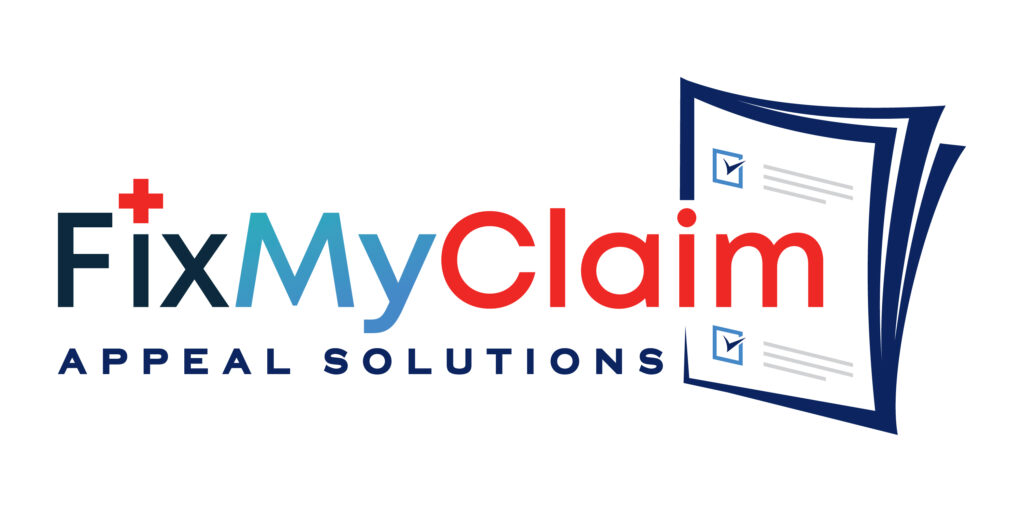
Basecamp Sponsor
FixMyClaim
Appeal Solutions

Coffee Break Sponsor
BlueStep
Software Solutions

Legacy Outdoor Adventures
Backdoorjobs.com
Short term job adventures

